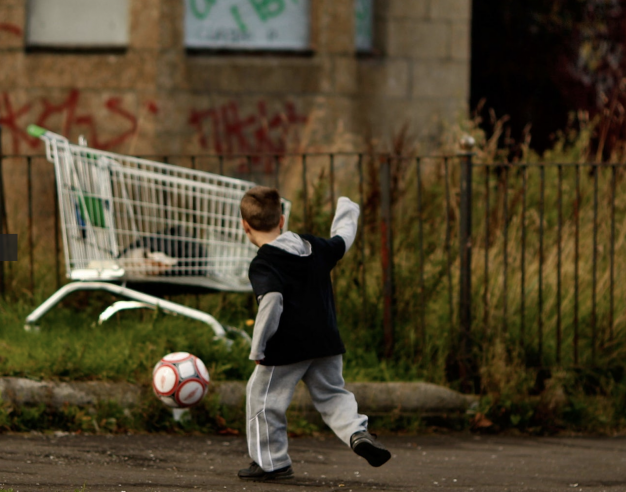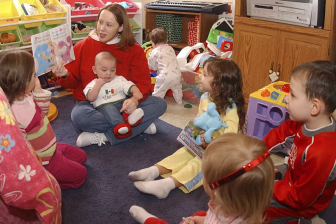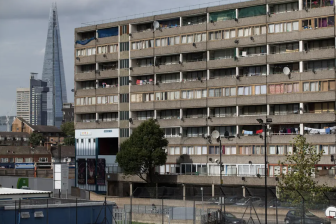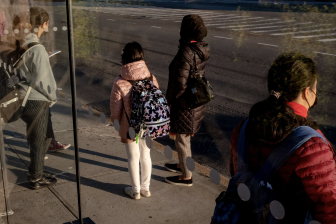
Inequalities widening, poverty increasing, for children in cities of northern England – report
Poverty levels among children growing up in the north of England are getting increasingly worse compared to many of their peers across the country.
That’s the grim conclusion of a wide-ranging report from child health experts and academics which lays bear some of the inequalities which beset communities across many northern working class towns and cities which, traditionally, are home to many working class communities.
The Child of the North: Building a fairer future after Covid-19 looks at factors from poverty to children in care, in order to build a picture of the lives of children often living in difficult conditions. It lists 18 specific actions that could help tackle the ever-increasing gap between the north and other parts of England.
More than 40 leading experts have come together for the report, including the Northern Health Science Alliance (NHSA), N8 Research Partnership (N8), and the University of Sheffield.
Sarah Salway, Professor of Public Health from the University of Sheffield said: “Our analysis across the piece highlights the intersection of socioeconomic deprivation and racial discrimination impacting the lives of ethnic minority children who continue to be overlooked in much local and national policy.
Children in the north, says the report, are more likely to die under the age of one, and more likely to be obese than children anywhere else in England. Many of the problems have been amplified and exacerbated by the lockdowns that have been imposed in England during the pandemic.
‘Problems amplified by lockdowns’
Looking into the future, the report estimates that the mental health conditions that children in the north developed during the height of the pandemic could cost an estimated £13.2 billion in lost wages over their working lives. They also missed more school than any of their peers across England, and only 14 per cent received four or more pieces of offline schoolwork per day, as opposed to 20 per cent for the rest of the country.
The report also found pupils in the North East and Yorkshire and Humber lost four-to-five times more learning in primary maths compared to areas in the south (4.0 and 5.3 months’ learning loss respectively, compared to less than a month in the South West and London). Children in the North are also significantly more likely to be in care than those in the rest of England. Of the local authorities with more than 100 children per 10,000 in care, 21 of 26 are in the North.
Hannah Davies, Health Inequalities lead for the Northern Health Science Alliance and report co-author, said: “This new report illustrates in no uncertain terms that without significant, properly-funded measures to tackle the entrenched inequalities experienced by children in the North of England, from birth, there will be no levelling up in the country.”
Key recommendations include:
- Increasing government investment in welfare, health and social care systems that support children’s health, particularly in deprived areas and areas most affected by the Covid-19 pandemic
- Taking immediate measures to tackle child poverty. Increase child benefit by £10 per child per week. Increase the child element in Universal Credit and increase child tax credits
- Introducing universal free school meals, make the Holiday Activities and Food Programme scheme permanent, and extend it to support all low-income families.
- Promoting the provision of Healthy Start vouchers to all children under five and make current government food standards mandatory in all early years settings
- Supporting educational settings to initiate earlier interventions. Teachers and early years professionals see many of the first indicators of children’s risk and vulnerabilities. Prioritising strong pupil and staff relationships and collaboration with parents/carers will ensure a firm foundation for meeting children’s needs, and for a return to learning
- Embedding local Covid-19 recovery strategies within internationally recognised human rights-based values and principles, notably those contained in the United Nations Convention on the Rights of the Child 1989.
Stephen Parkinson, of the N8 Research Partnership and report co-author, said: “If we fail to focus on children in the recovery, we risk burdening them with some of the most enduring consequences of the pandemic. As this report sets out, children growing up in the North have in many ways been disproportionately impacted, and we invite government at all levels to engage with our recommendations to secure the best possible future for them.”
Click here for the full report.




